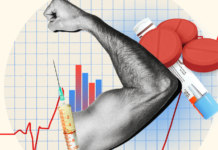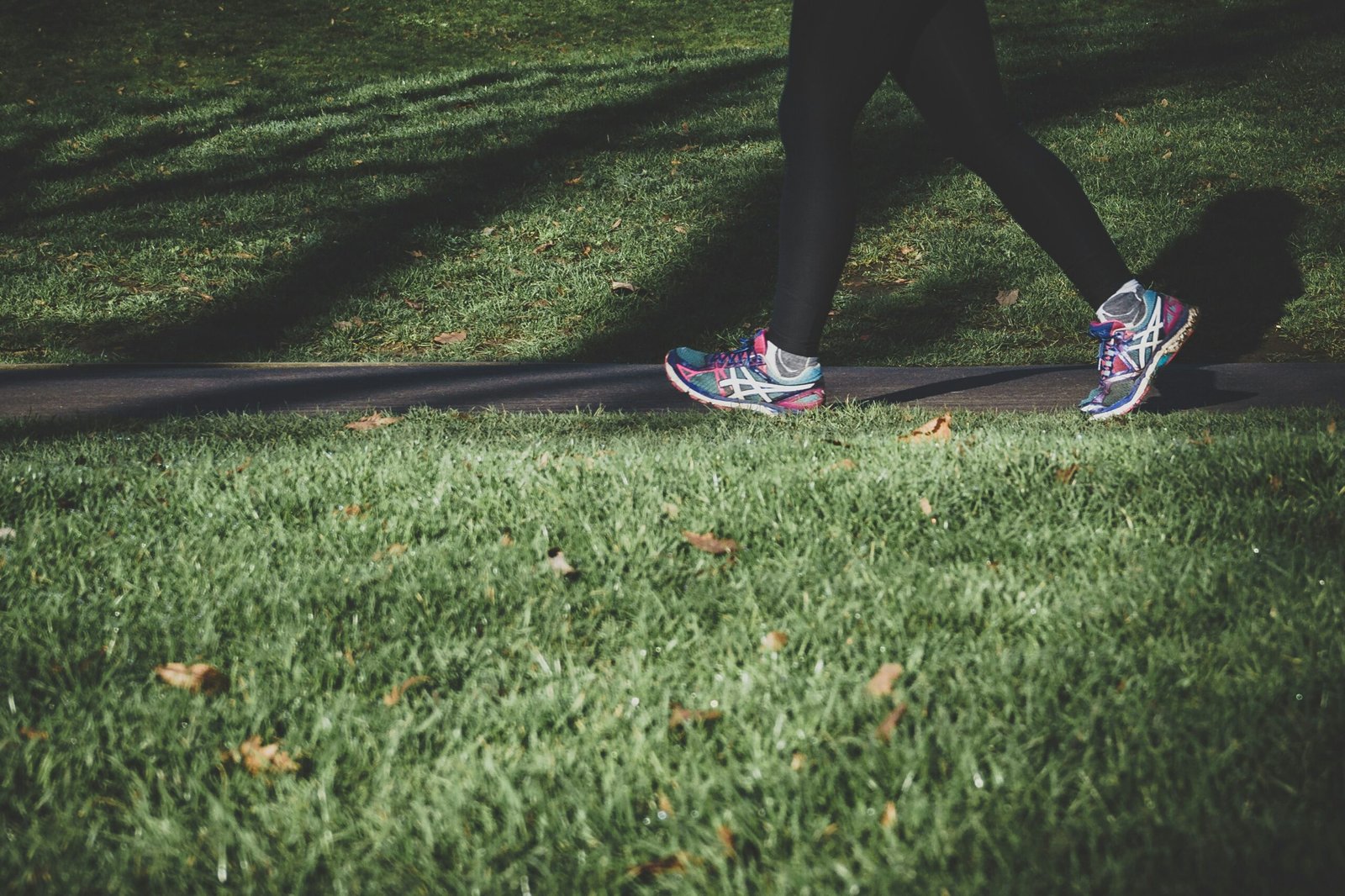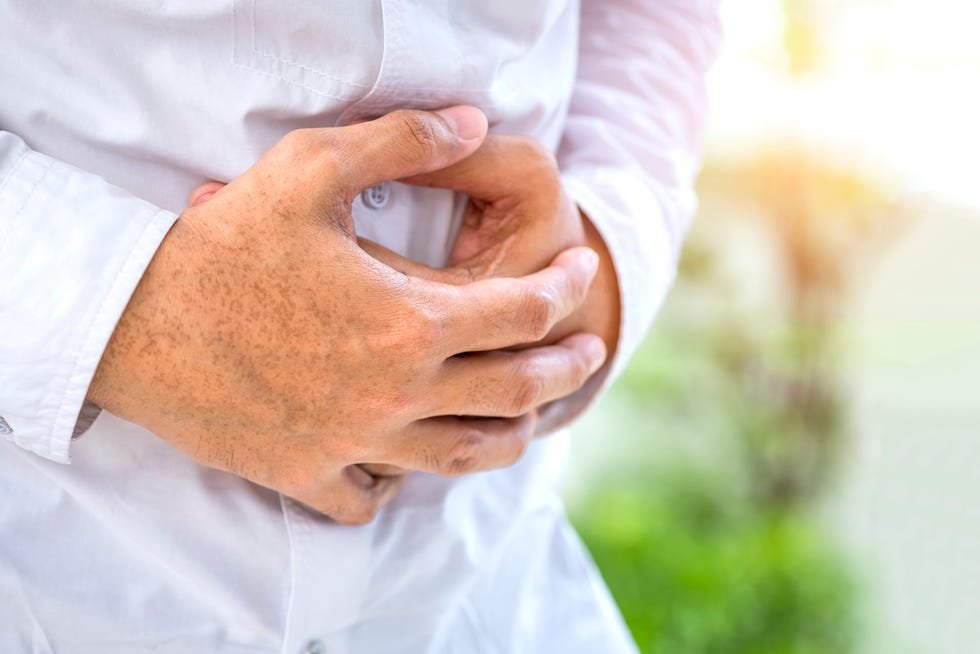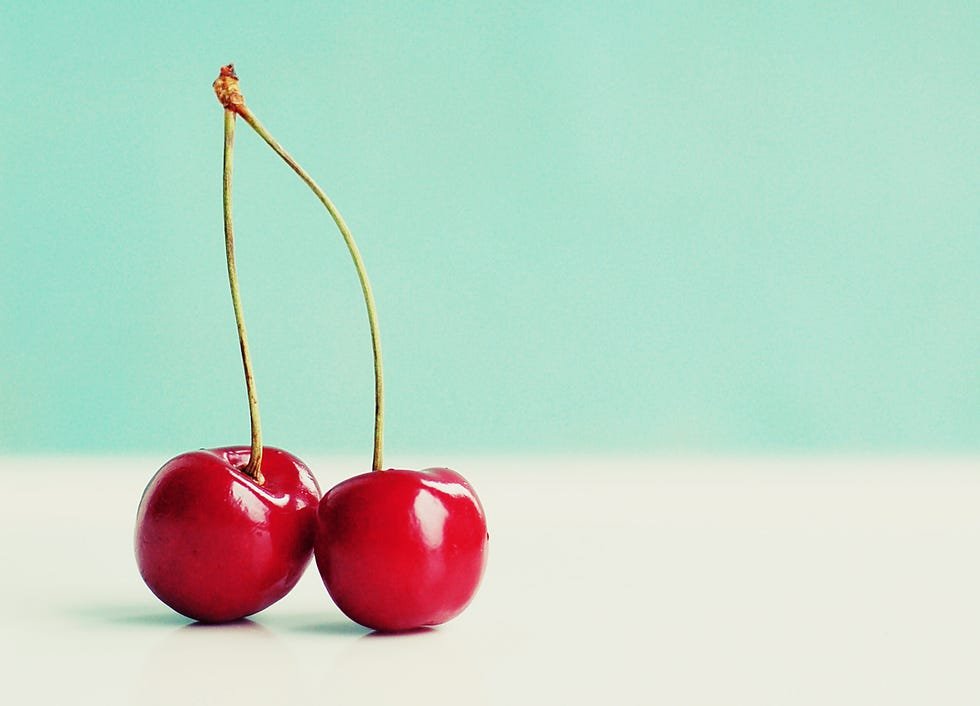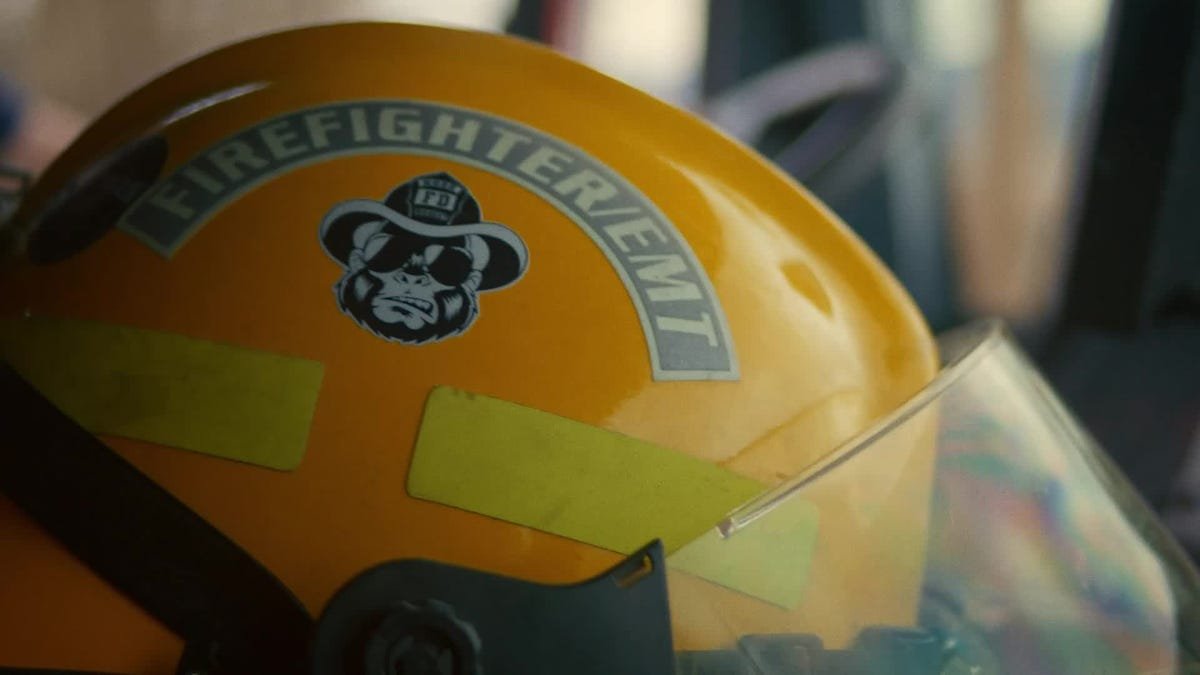Went too hard in the gym yesterday? Your muscles might be sore. Hunched over a desk for an extended period of time? Here comes the back stiffness as you attempt to leave the office. Stub your toe on the doorframe? Ouch. Most of these pains we don’t give a second thought. Others, like when your balls hurt, raise more of a concern.
Testicular pain might feel worrisome, but don’t hit the panic button too quickly. Yes, there are some potentially scary reasons your balls are in pain, like STIs and cancer. There are also way more normal, non-scary reasons they’re aching. If you’re feeling some aching, discomfort, or sharp pain, here are a few reasons your balls may be hurting—and what to do about it.
What Is Testicular Pain?
Testicular pain can feel different to each person, depending on the person and the cause. It can feel like anything from a dull ache and discomfort, to a touch hyper-sensitivity, to a sharp pain deep inside.
It is important to note that testicular pain is common. It is so common in fact that it is very likely that every guy, at some point in his life, will have experience with it, says Jamin Brahmbhatt, M.D., co-director at The PUR Clinic, which specializes in urology and men’s health.
If any sort of ache, discomfort, or pain makes you jump to conclusions, the first thing you may think of is testicular cancer. Understandably, since testicular cancer tends to appear when you are younger or when you have reached middle age, but Brahmbhatt points out that most cases of testicular cancer are in fact painless and are usually detected through a bump or lump.
So you may be in the clear from any cancer scares (when in doubt, schedule an appointment with your doctor), but could another reason your balls hurt be due in part to a sexually transmitted infection (STI)? Although some degree of pain is present in the testes with an STI, if that’s your issue, you are more likely to experience burning during urination instead.
So, then, what is causing your painful balls? There are plenty of reasons. It might be a problem somewhere else, like a kidney stone or stomach issues, or it might be due to the veins there or any number of other causes, from benign to “see your doctor right away.” If your junk is in a funk, what gives? Here are some of the most common reasons your balls hurt.
What Causes Testicular Pain?
Testicular Torsion
Testicular torsion can happen in a number of ways. It can occur when you’re working out, having sex, or even sleeping. It’s most common between the ages of 12 and 18, but can happen at any age.
Whatever the case, you should visit the doctor immediately if you suspect it’s happening to you. In some cases, doctors can manually un-twist the testicles. But most often, you need surgery to fix it. Consider it a medical emergency: If blood flow has been cut off for too long to your testicle—as when blood flow is cut off to anything else in your body—tissue can die. And in that case, sometimes the testicle needs to be removed.
Kidney Stones, Constipation, Hernia, or Stomach Issues
The nerves that lead to your balls come from many places in your abdomen, including the stomach, kidneys, and digestive tract. If you’re constipated and can’t poop, pressure from the unrelieved waste could be pressing on those nerves, causing those sore testicles.
The same goes if you have a kidney stone working through your system, or if you have an upset stomach. If you have a hernia or have had hernia surgery, the nerves there could be inflamed, causing a reaction further south.
This all falls under the designation of “referred pain,” which means it isn’t about your balls at all, but that’s where the pain is ending up, Brahmbhatt says.
Vasectomy
Experiencing scrotal pain after a vasectomy — a surgical birth control procedure in which the duct that carries your sperm from your testicles to your urethra is sealed off — is super rare, but it can occur and may very well be the reason you find yourself searching for “reasons your balls hurt.”
In fact, according to the American Urological Association, chronic scrotal pain occurs in just one to two percent of men who get the procedure. Experts are not sure what causes the pain, but it may have to do with damage to the nerve structures there, researchers from Rush University Medical Center say.
“I do not want to scare anyone away from having a vasectomy,” says Brahmbhatt. “But just be aware that [testicular pain] can happen. But it can also be corrected if it does.” That could mean another surgical procedure.
If you are thinking of getting a vasectomy, do not stress or sweat it. Here is everything you need to know about getting a vasectomy including what a vasectomy feels like.
Hydrocele
When you look at the anatomy of the testes, it’s basically just balls dangling on a couple of cords. Making up those cords are blood vessels, nerves, and tissue that allow for the dangle.
Everyone has some degree of fluid around the testicle and these cords, Brahmbhatt notes, but sometimes, that fluid balance gets out of whack. When there’s too much fluid in the ball sac, you can end up with a hydrocele. The hydrocele itself typically isn’t painful, but guys may feel pain from having a heavy, swollen scrotum, according to the Mayo Clinic.
Go see a doctor whenever you notice swelling in your balls. If it turns out to be a hydrocele, it might go away on its own within six months. In some cases, it could require surgery.
Pelvic Floor Muscle Spasm
Testicle pain, better referred to as scrotal content pain, can be due to a variety of non-organ-threatening causes such as referred pain from a hernia, kidney stone, as mentioned above, or most commonly a spastic pelvic floor muscle, shares Laurence Levine, MD., professor of urology in the Department of Urology at Rush University Medical Center in Chicago.
Pelvic floor dysfunction is a common condition where you are unable to correctly relax and coordinate the muscles in your pelvic floor to urinate or to have a bowel movement and according to the Cleveland Clinic, it affects millions of men around the world each year. The good news is there are treatments including biofeedback, medications, pelvic floor physical therapy, and relaxation techniques.
Varicocele
A varicocele is the enlargement of veins in the testicle, more or less. It’s actually the enlargement of veins in your scrotum, the bag that holds your testicles. You can think of varicocele as spider veins for your balls. It’s not likely to cause true sore testicles as much as discomfort. There’s a feeling of fullness and a certain look to it, similar to a bag of worms, Brahmbhatt says.
The symptoms depend on which stage varicocele you have. Grade 3 varicoceles are largest and most noticeable, and will feel thick and lumpy. Grade 2 are less severe, though they still may feel a little ropey. Sometimes, you won’t even notice if you have a Grade 1 varicocele. Many develop during puberty, and often develop on the left side, possibly due to the position of the left testicular vein.
If you have a more severe varicocele, buildup of pressure in the veins can cause nagging scrotal discomfort, Paul Turek, M.D., a California-based urologist previously told Men’s Health. Varicoceles have also been associated with low sperm production and quality, so doctors often check for them when people are having issues with fertility.
For severe cases, you may need surgery, where your doctor will divert blood flow away from the damaged vein into functioning ones.
At-Home Remedies for Testicle Pain
Whether you’ve booked an appointment with a doctor or not (when in doubt, always err on the side of caution and book one), there are a few at-home remedies you can try that may help to relieve some discomfort and pain.
Levine suggests anti-inflammatory medications like ibuprofen, rest, and elevating your scrota. “Sometimes ice can help when the pain is acute from minor trauma while sitz baths (sitting in a warm, not hot tub) can be soothing, particularly for chronic pain which may be around for weeks or months.”
When to See a Doctor About Sore Testicles
For all of these issues, the answer to, “When should I see a doctor?” has to do with time and severity. Pain that fades quickly — for example, if your balls get twisted but quickly straighten out — isn’t much cause for concern, Brahmbhatt notes. But if you’re experiencing a high degree of pain instead of a dull ache, and it lasts for more than 15 minutes, it could be a medical emergency and you should head to the E.R.
“If you wait too long, you could potentially lose the testicle,” he says. That would negatively affect your fertility. Also, the pain could be a huge warning sign of problems elsewhere in the body, such as kidney stones, bladder issues, or appendicitis, Brahmbhatt notes.
Even if you have an ache instead of shooting pain, or you’re noticing fluid collection, get it checked out. Testicular pain may not be caused by just one thing. “Testicular pain can be multifactorial,” Brahmbhatt says. “More than 30 percent of the time, we never figure out the exact cause of the pain. In layman’s terms, we know there is pain, and it may be due to disturbed nerves, and we have good treatments, but we may never know the ‘why.'”
Brahmbhatt also suggests doing a self-check monthly to detect any changes in your testes health. There’s nothing weird about it, and it’s not complicated (find out more about how to do it right here). Basically, get to know your balls.

